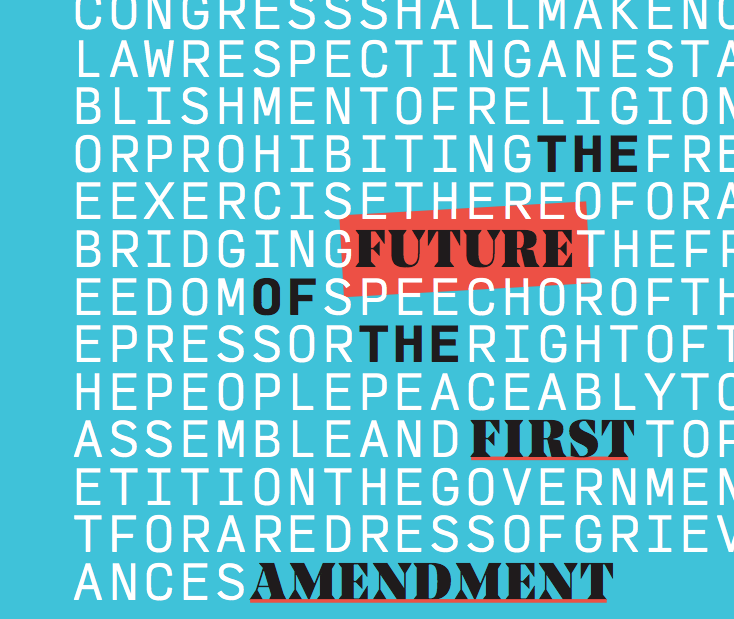Future of the First Amendment 2022: High schooler views on speech over time
Knight Freedom of Expression Research Series (KFX)

Emerging generations are the future gatekeepers of our democracy. High school is a formative period marked by increased agency in society, a time when students begin to develop and flex the muscles required for civic engagement and democratic participation as adults.
As such, Knight Foundation has taken a deep interest in high school student attitudes toward the First Amendment.
Since 2014 Knight has been surveying high school student and teacher attitudes about free speech and the news media, providing a longitudinal look into the views and attitudes toward speech among young people over time. This unique body of work tracks trends pertaining to popular culture and policymaking around online speech, journalistic freedom, extreme forms of expression and personal privacy, among other important speech issues.
Understanding where different groups stand is vitally important for education leaders and policymakers as they seek to prepare the next generation for democratic participation.
We also invite the public, policymakers and researchers to use our publicly available data in their own work.

Knight Freedom of Expression Research Series (KFX)

Knight Freedom of Expression Research Series (KFX)

Knight Freedom of Expression Research Series (KFX)
Students and teachers overwhelmingly agree that people should be allowed to express unpopular opinions, a finding that has been consistent for nearly two decades. It’s important to note that support falls when opinions are “offensive” or “threatening.”
In every survey we have conducted since 2004, we found that students who have taken classes that include instruction about the First Amendment tend to be more supportive of free speech rights than those who have had no such coursework.
Gender as well as race and ethnicity are related to the willingness of students to say that the “First Amendment goes too far” in the rights it guarantees. Students in racial minority groups, women and non-binary students are less likely to feel they are protected by the First Amendment than white and male students.
In Knight’s latest survey from 2022, only 57% of students say news organizations should be able to publish without government censorship, while 59% say the same for people posting on social media. Moreover, the 2016 survey found that a growing minority of students (28%) say journalism “keep[s] leaders from doing their job” as opposed to “keeps leaders from doing things that shouldn’t be done” when asked to select which statement more closely reflects their views.